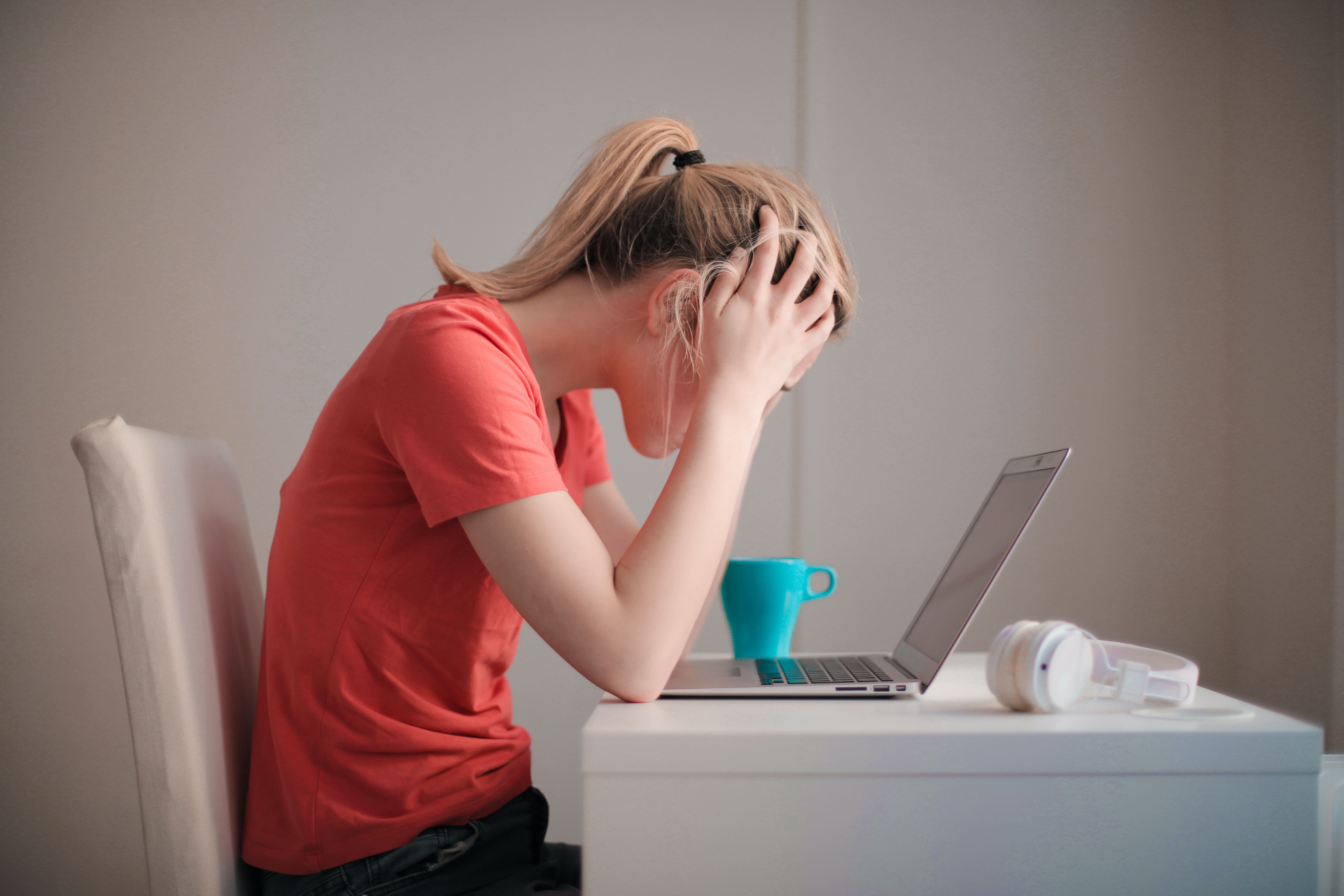
Vaginal Itching
Itching “down there” can drive any woman crazy. Vaginal itching happens around the vulvovaginal area (so both internally and on the outside). Having an itch is not about being dirty or having poor hygiene. There are many common causes ranging from wearing synthetic materials that irritate your skin to an allergic reaction to deodorant.
- Symptoms
- What causes vaginal itching?
- Itchiness
- Yeast infection
- Menopause
- Stress
- Skin conditions
- STDs
- Chemical irritants
- Bacterial vaginosis
- How to stop vaginal itching
- Home remedies for vaginal itching
- How to prevent vaginal itching
- When to see a doctor for vaginal itching
Symptoms:
- Itchiness around the genitals.
What causes vaginal itching?
Here are some possible causes for vaginal itching:
Itchiness
Itchiness in this sensitive region is often caused by dermatitis which means your skin has come into contact with something that has irritated it. This could be a reaction to the material of your underwear, the dye in your clothes, a vaginal deodorant, bubble bath or other perfumed product.
Or the itching may be caused by an infection. Thrush is a yeast infection caused by a fungus called Candida albicans. This normally lives harmlessly in the vagina but if the natural balance of the vagina gets upset candida multiplies causing itchiness.
Yeast infection
Yeast infections are prevalent and will affect most women at some point in their lives. This is also called vaginal candidiasis or thrush. This occurs when the balance of bacteria and yeast in the vagina is upset, which can happen during hormonal changes, when using a douche, or if the area gets scratched or damaged. Yeast infections can often be recognised by an unusual white or clear discharge.
Menopause
Vaginal itching can be more common during menopause. This is because your body's oestrogen levels will drop, which makes vaginal tissue drier and thinner. This is also known as vaginal atrophy, and the itchiness or soreness may be more noticeable during or after sex.
Stress

Both physical and emotional stress can cause a range of problems, including vaginal itching. This is because stress can make it harder for your body to balance hormones, which could lead to dryness and itching. You might also find that stress lowers your immune system, making you more prone to infections or thrush.
Skin conditions
Some skin conditions can also affect the vaginal area. For example, you might notice increased vaginal itching if you have a flare-up of eczema or psoriasis. These conditions can cause itching and redness if they spread to the vaginal region. If your vaginal itching is caused by skin conditions, you will probably have itching and redness in other areas of your body.
STDs
A lot of sexually transmitted diseases can cause vaginal itching. This includes chlamydia, gonorrhoea, genital herpes, genital warts, and trichomoniasis. These STDs also usually cause growths and unusual discharge, or you might notice pain while urinating. STDs can primarily be caught through unprotected sex, but some STDs such as genital warts can be transmitted even during protected sex.
Chemical irritants
The vaginal region is very sensitive, and chemical irritants can often cause vaginal itching. These irritants can include things that do not irritate other parts of your body, such as soap, bubble baths, detergents, creams or ointments, and even scented toilet paper. Even some products designed for intimate use, such as feminine sprays, douches, and scented lubricants can still irritate.
Bacterial vaginosis
Bacterial vaginosis (BV) is another possible source of itching. This is also an infection that occurs when the balance of the bacteria in the vagina becomes disrupted. Causes of BV are not clear but suggested triggers include new sexual partners, smoking, using strong detergents to wash underwear and using scented bath products. Itchiness can also result from a sexually transmitted infection. A common one causing itchiness is trichomoniasis.
How to stop vaginal itching
How itchiness of the vagina is treated will depend on what is causing the itchiness.
- The vagina cleans itself with natural secretions but you should wash the area around the vagina daily with feminine hygiene and wash products such as unperfumed soaps or wipes designed for this purpose.
- To ease itchiness use vaginal itching cream or vaginal moisturiser. Using 1% hydrocortisone cream (available over-the-counter) may also provide relief.
- Thrush can be treated easily with anti-thrush remedies in the form of thrush tablets, pessaries or thrush creams for women available through NHS or private prescription or over-the-counter. At Chemist Direct we stock a wide range of oral thrush treatments over-the-counter.
- Infections are treated with prescription-only antibiotics. Consult a doctor if the itching is severe or ongoing. A GP will take a vaginal swab to determine the cause and treatment.
Home remedies for vaginal itching
Some causes of vaginal itching can be helped by home remedies. Most home remedies for vaginal itching will not interfere with medical treatment. Some home remedies for vaginal itching include:
- Use warm water for cleaning your genital area
- Switch to a gentle cleanser designed for feminine areas
- Avoid sexual intercourse to prevent further damage to the area
- Eat live yoghurt to ensure a good balance of bacteria to combat yeast infections
- Apply plain Greek yoghurt and honey to the affected area
- Get an over-the-counter antifungal cream for yeast infections
- Use an unscented vaginal oil to rehydrate dry and itchy skin
- Take vitamin E supplements to combat vaginal atrophy
How to prevent vaginal itching
- Healthy eating and regular exercise will promote good general and good vaginal health.
- Wear loose-fitting clothes to let air circulate to prevent itching and chafing.
- Wear cotton underwear rather than synthetic fabrics
- Change underwear at least once per day
- Use condoms to prevent the spread of STDs
- Do not douche
- Wipe towards the back after using the toilet
- Avoid scented toilet paper or menstrual pads
- Avoid soaps, lotions, and bubble baths with scents or colourants

When to see a doctor for vaginal itching
While there are plenty of ways to prevent or treat vaginal itching at home, there are times when you should see a doctor. You might want to contact a doctor if your vaginal itching does not get better after a few days, or if you have the following symptoms:
- An unusual discharge, including clear, white, green, or yellow discharge, or bad-smelling discharge
- Abdominal or pelvic pain
- Unexpected or unusual bleeding
- Pain or stinging when urinating, or other urinary symptoms
- White patches of skin on the vulva
- Lumps or growths in the genital region
Sources:
- Vaginitis, NHS: https://www.nhs.uk/conditions/vaginitis/
- Vaginal Itching and Discharge - Adult and Adolescent, MedlinePlus: https://medlineplus.gov/ency/article/003158.htm
- Vaginal Itching – An Itch You Just Can’t Scratch, The Gynae Centre: https://www.gynae-centre.co.uk/blog/vaginal-itching-an-itch-you-just-cant-scratch/
- Vaginitis, Cleveland Clinic: https://my.clevelandclinic.org/health/diseases/9131-vaginitis
- Itchy Vulva, Patient: https://patient.info/womens-health/vulval-problems-leaflet/itchy-vulva-pruritus-vulvae
Related Articles:

